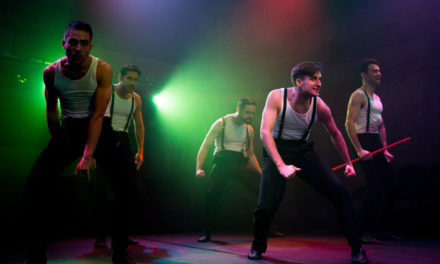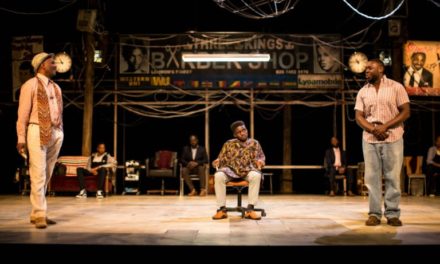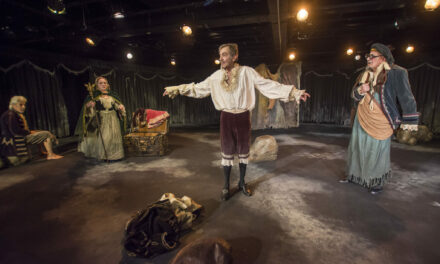Some years ago, I discussed my love of buckwheat with the co-artistic director of Belarus Free Theatre, Natalia Kaliada. We were eating together, and I had ordered a sour-cream buckwheat dish. “Don’t you like buckwheat?” I naively asked when she declined to have it herself. “I hate it,” she told me, or words to that effect. And then she told me that one of her most pertinent memories in Belarus during the Soviet Economic crisis of the 1980s was queuing on cold street corners with her mum for buckwheat. All buckwheat does is remind her of those difficult times. It’s not put me off my buckwheat, but whenever I buy it, I think of that story and the different connotations it has for us both. In the UK, it is primarily marketed as a super food, but in Soviet satellites it was a boring staple and represented poverty and lack.
Our relationship to food is personal, and it seems we only remember good food if it is associated with our happy memories, or the awful food if it is connected to our worst times. Or perhaps the food we once liked becomes awful if associated with a terrible event. It is tragic comic, this human tendency. This mix between tragedy and comedy is precisely the note Serbian theatre maker Andrej Nosov from production company Hartefact strikes with A Short History of Burgers and other stories which explores the mundanity, horror and comedy of life and our memories of it connected to our relationship with food. Set in a monotone bedroom on stage at Dodona Theatre in Prishtina (it was previously performed in apartments in Belgrade, Serbia) the staging has a formal and yet intimate feel. Dutch actor Simon Versnel (who, along with playwright Đorđe Kosić, collaborated on the material with Nosov) meets the audience at the door, bearing chocolates, which he drolly hands out without a bit of irony before beginning his monologue.
It centres on an older, unnamed man, retelling memories of his interactions with his parents that he can’t get out of his head and which have a Proustian-like connection to his early childhood memories of food – food which, as he recounts these events, he feels he has to devour during the show. Dressed in boy shorts, Versnel is every inch the boy-man slamming the pan on the mini cooker to make pop-corn or pushing the pan with a calming motion as he relates his character’s fractious relationship with his mother.
Is there a link between the urge to make food based on an emotional impulse which conveys more than a thousand words can (and yet seems redundant, because after all, when it has been eaten it has gone) and an inability to verbally express ourselves when stuck in a memory or overcome with feeling? Versnel gets stuck in the physical repetitiveness of making pop-corn, as much as he does soon after when he repeats, his voice rising in volume, “My mother is not a whore! My mother is not a whore!” After which, there is a heavy silence, and he can say hardly anything more about the issue.
In a decidedly reticent and understated moment, Nosov also touches upon the pains of finding one’s sexual self. In classic soft Versnel narration, a sort of English RP with an accent, the old man character recounts when his mother found him dressing up in her clothes. Taking on the mother’s role he says, “I dealt with school, now you deal with him touching my skirts.” Versnel then becomes the father, who is, of course, eating an apple – a picture of a man in rude masculine health. The dad says the boy must attend karate and football and go with him twice a week to his job. The moment is not developed but passes into another more distressing and hurtful one and as there is no clear understanding of who this memory belongs to, it takes on a universal meaning.
The ordinariness of this short show belies its wit and grace. The character is a conglomerate of souls and the ending has a comic poignancy that is as entertaining as it is soul-destroying. The overall impression the show leaves is curiously elusive. It’s a study of moods and responses to life’s events which pass through Versnel’s character and yet shadow him wherever he goes. There is no other meaning to it. And this is what gives the show its fascination.
A Short History of Burgers and other stories was performed as part of the Kosovo Theatre Showcase 2023.
This post was written by the author in their personal capacity.The opinions expressed in this article are the author’s own and do not reflect the view of The Theatre Times, their staff or collaborators.
This post was written by Verity Healey.
The views expressed here belong to the author and do not necessarily reflect our views and opinions.


















